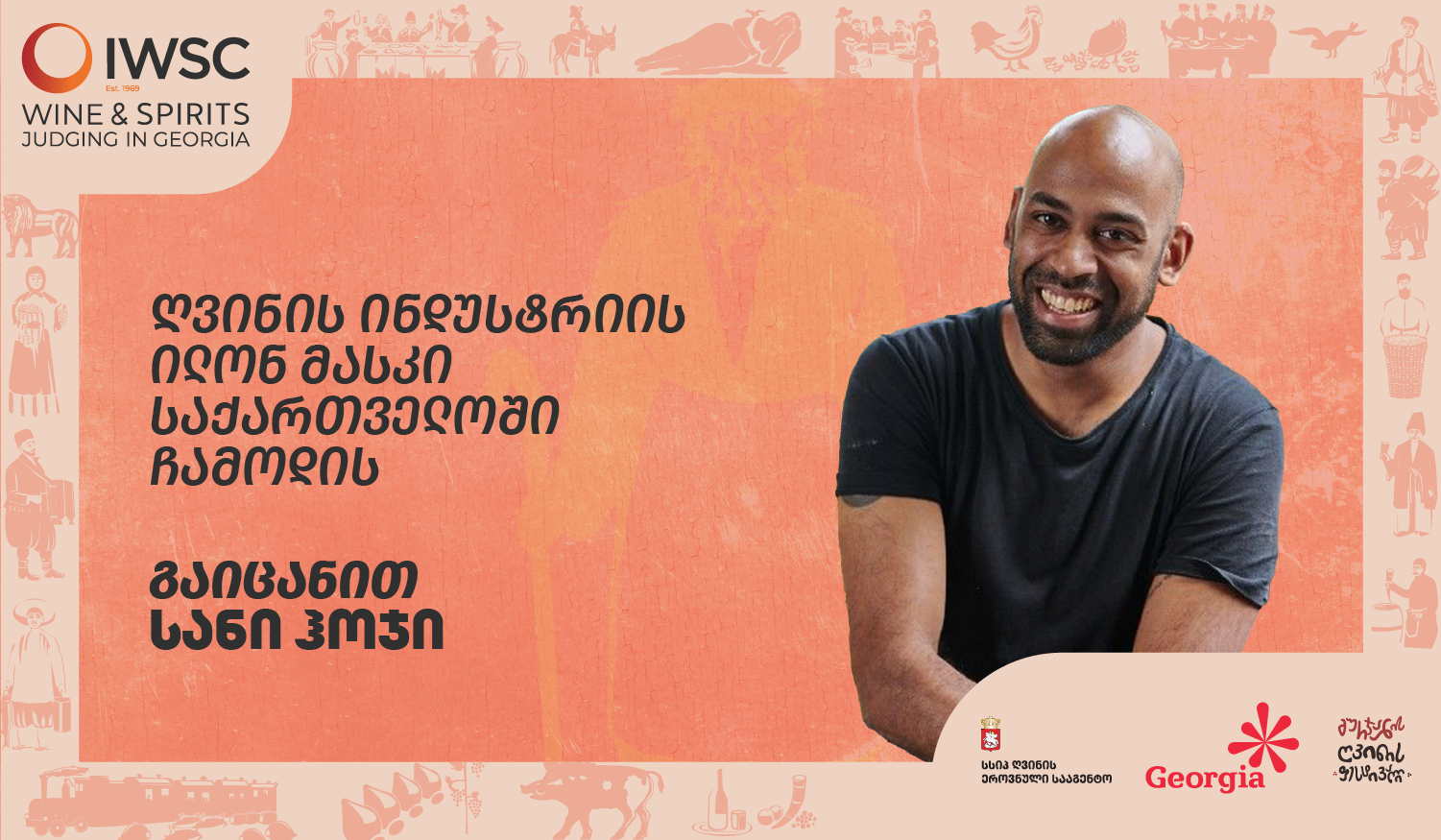
The Elon Musk of the wine industry is coming to Georgia: Meet Sunny Hodge
The IWSC (International Wines and Spirits Competition) will hold its third competition in Georgia. The competition will be held in Tbilisi from November 27 to December 1, 2024, in collaboration with the Gurjaani Wine Festival and the National Wine Agency of Georgia.
This year, the competition will have a particularly impressive international jury. One of them is Sunny Hodge, a recognized expert and consultant in the wine industry in the UK, owner of prestigious wine bars Diogenes The Dog and Aspen & Meursault in London.
Sunny is known for his different approaches and management in his field. As the British wine publication Club Oenologique writes, on the one hand, Hodge is trying to make the language of wine conversation much freer and simpler and allow people to express their own thoughts and emotions. On the other hand, he encourages wine professionals to speak in less technical and simpler language.
With a month to go until the competition, we caught up with Sani in London to talk about her expectations and plans.
What are your expectations from the IWSC 2025 Wine and Spirits Judging in Georgia and how do you see the competition impacting Georgian winemaking?
Given that Georgia is the birthplace of wine, I expect many wines made using traditional methods at the competition – wild yeasts, pressed in a press and aged in a qvevri. These are ancient winemaking methods that require great skill to master, so I am especially looking forward to tasting them.
We all have a certain idea of what Georgian wine should be like, but few know what the state of the Georgian wine industry is today. In my opinion, the annual IWSC competition, which is being held in the country for the third time, will once again present to the world the diversity, quality and uniqueness of Georgian winemaking.
I am particularly interested in where the line is drawn between the traditional method of winemaking and the future development of this wine. I would like to see how natural wine production responds to modern requirements. It will be very interesting to hear the opinions of Georgian producers and discuss this topic.
You have extensive experience in the field of wine education and hospitality. How do you think this knowledge will be reflected in the evaluation of wines in the competition?
I prefer an analytical approach to wine evaluation. Since I am directly involved in all aspects of this field and have direct contact with guests every day, when tasting a wine I think about its commercial potential – how successful it will be in a wine shop or bar. I am particularly interested in how a wine from a lesser-known region will present itself in relation to its more popular analogue. I try to imagine what kind of reaction a customer will have who brings this wine to a party and what kind of story can be told about it. It is this complex approach that determines my final evaluations.
Based on your extensive experience in the wine industry, what are the distinctive features of Georgian wines that distinguish them from other wines you are familiar with?
Georgian wine is distinguished by its traditional production methods and, most importantly, its diversity. It is interesting that different styles of wines are produced for different markets: for the Eastern European and Russian markets – wines made with local yeasts and low sulfites; for the Western markets – lively, clean-style wines; and for the niche consumer – natural wines. It is especially noteworthy that all three of these different directions are based on the same traditional foundation of winemaking, which makes Georgia unique – it is rare for a region to maintain this diversity on such a scale.
As an expert in wine science and hospitality, how do you imagine the role of technology in preserving and popularizing traditional methods of Georgian winemaking?
This process is already underway. The traditional method of winemaking in Georgia is quite complex and laborious – it requires exceptional cleanliness and meticulous attention to detail, which is associated with significant costs. The length of this process sometimes prevents the achievement of stability characteristic of the global market. This is where the important role of technology comes into play. For example, the use of non-commercial, but selective yeasts ensures more consistent and predictable results.
The use of stainless steel, concrete and concrete barrels is a step towards cleaner and more concise wine production.
An interesting example is the winery “Pafri Valley”, which uses the synthesis of science and technology. For example, the gravity method – they have a three-level terrace system, where grape juice naturally flows from one vessel to another. This significantly simplifies both the blending and cleaning processes. I am sure that wineries in Georgia can successfully implement modern technologies, which will allow them to produce more stable quality wines for the global market.
We would like to remind you that the IWSC (International Wines and Spirits Competition) will hold its third competition in Georgia. IWSC 2025 Wine & Spirits Judging in Georgia, in cooperation with the Gurjaani Wine Festival and the National Wine Agency of Georgia, will be held in Tbilisi from November 27 to December 1, 2024. Traditionally, IWSC will be represented in Georgia by a star-studded team of international judges, whose experience and knowledge will ensure that the competition is held to the highest standards.
Registration for participation in “IWSC 2025 Wine & Spirits Judging in Georgia” is open until November 1.
Winemakers will have an important news this year: in addition to wine products, it will be possible to submit chacha, brandy and other high-alcohol beverages to the competition.
To register, visit the link: https://bit.ly/4eUvaCG
